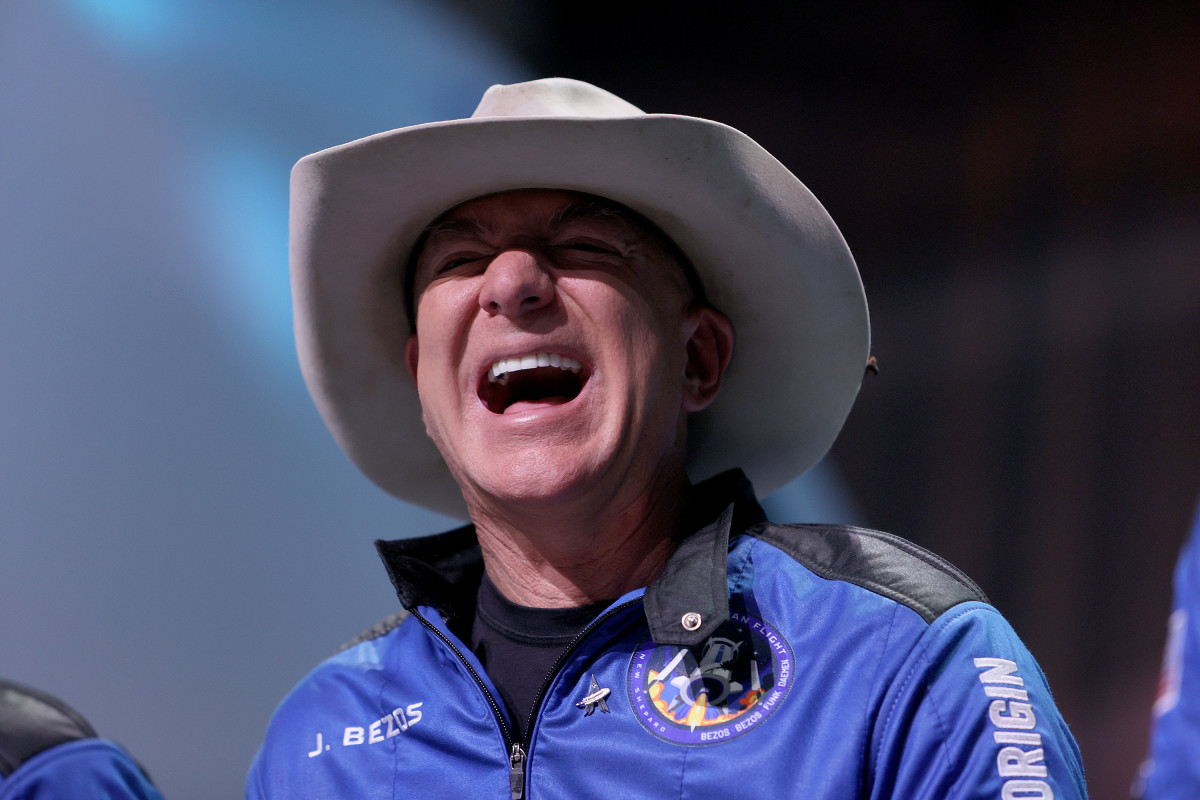
The largest companies in the world typically require the biggest personalities in the world to run them.
Take, for example, Tesla's (TSLA) -) Elon Musk. The $785 billion company splits its time with its leader with Twitter (now X), and SpaceX, to name a few.
Related: Trader Joe's is discontinuing these beloved items in 2024
Amazon (AMZN) -), similarly, was run for years by its founder Jeff Bezos who now spends much of his time on his 417 foot yacht Koru and launching celebrities into space.
For over 20 years, though, Bezos grew Amazon from an online bookshop into the global warehouse it is today. It led him to become a billionaire more than 100 times over (he's worth $176.3 billion, to be exact). And you don't get to that level of fortune without a few right steps along the way.
Jeff Bezos reveals his best meeting tips
While Jeff Bezos hasn't run Amazon since 2021, he went on "The Lex Fridman Podcast," recently to discuss some of his best business tips.
One such topic was subject of meetings, and how to make them more pragmatic in an increasingly remote age.
"I like a crisp document and a messy meeting," Bezos told Fridman when asked about his preferred brainstorming style.

"In every meeting I attend, I always speak last," he added.
Bezos also added he avoids PowerPoint slide presentations at all costs. He instead encourages his employees to ask difficult questions rather than "hiding a lot of sloppy thinking in bullet points."
"We have in our society and inside companies, a bunch of mechanisms we use to resolve these kinds of disputes," Bezos added. "A lot of them are, I think, really bad. An example of a really bad way of coming to an agreement is compromise."
He's also known to mandate a "two pizza rule," in his meetings. This means that if two standard sized pizzas aren't enough to feed everybody in attendance, the meeting is too big. This helps keep meeting sizes to a minimum and give everybody a chance to speak, rather than falling in line with what the general consensus or mood of the room might think.
Another way he avoids groupthink: speaking last.
"In every meeting I attend, I always speak last," he told Fridman. "I know, from experience, if I speak first, even very strong-willed, highly intelligent, high-judgment participants in that meeting will wonder, 'If Jeff thinks that? I came into this meeting thinking one thing, but maybe I'm not right.'"
"If you're the most senior person in the room, go last. Let everyone else go first. Ideally, have the most junior person go first — try to go in order of seniority — so that you can hear everyone's opinion in an unfiltered way," he said.







